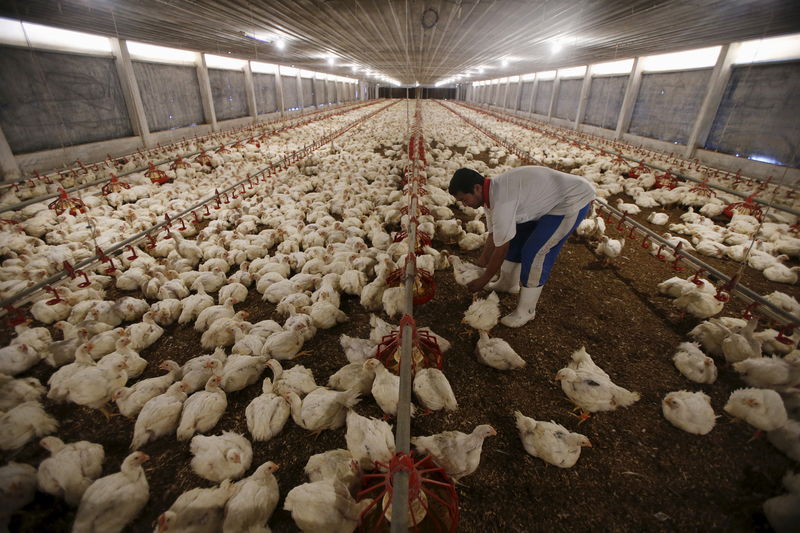Investing.com -- Following the lead of a growing list of prominent restaurant chains and grocery stores in recent months, 7-Eleven announced on Tuesday that it will move to exclusively serve cage-free eggs in the U.S. and Canada by 2025.
7-Eleven, which operates more than 17,000 stores in North America, took steps in February to improve its breakfast menu when it unveiled two new sandwiches, including the Bacon, Egg and Cheese Breakfast melt. Prior to the launch, the convenience store already sold more than 1 million of its protein-rich Melt sandwiches per day. The company did not announce plans on Tuesday to curtail usage of cage produced eggs in its Melt sandwiches immediately.
"7-Eleven cares about the treatment of animals and switching to cage-free eggs demonstrates our concern," said Jesus Delgado-Jenkins, executive vice president and chief merchandising officer for 7-Eleven. "We believe that it is becoming important to our customers for us to serve more humanely-sourced eggs."
The announcement comes several months after McDonald’s Corporation (NYSE:MCD) launched an initiative to transition entirely to cage-free eggs over the next 10 years. By the end of 2017, Burger King plans to eschew cage-produced eggs, while SBUX plans on doing the same by 2020. Meanwhile, Wal-Mart Stores Inc (NYSE:WMT), Costco Wholesale Corporation (NASDAQ:COST) and Trader Joe's sell exclusively cage-free eggs from their private labels and Whole Foods Market Inc (NASDAQ:WFM) does not sell any eggs from caged hens.
Cage-free eggs are produced by free-roaming hens which typically have unlimited access to fresh food and water without being constrained to a narrow living area. Some free-range hens with access to outdoor environments subsist on diets consisting of grain feed, wild plants and insects. By comparison, as recently as 2010 nearly 95% of egg-laying hens in the U.S. lived in tight caged quarters in packs of five to 10 with little room to spread their wings, according to the United Egg Producers.
At the same time, cage-free eggs do have their drawbacks. Hens from non-cage systems are reputed to have higher mortality rates, lower rates of egg production and require more feed to produce a dozen eggs, resulting in poor feed conversion.
In March, Bloomberg reported that cage-free eggs at $3.42 per dozen, can cost a U.S. consumer nearly twice as much as conventional eggs. A month earlier, SAFE, an animal welfare group in New Zealand estimated that a ban on caged eggs could families nationwide an additional $164 per month.
